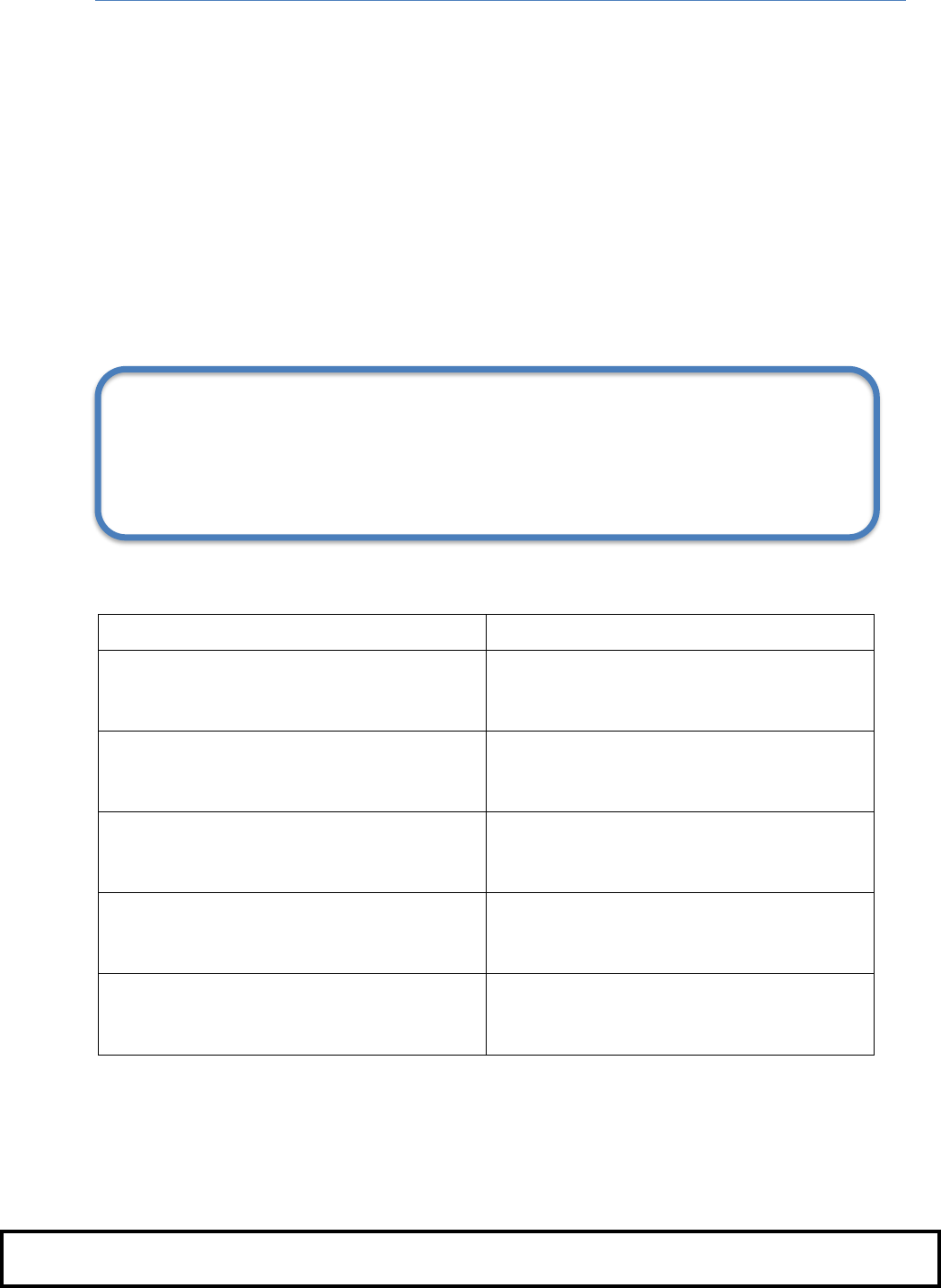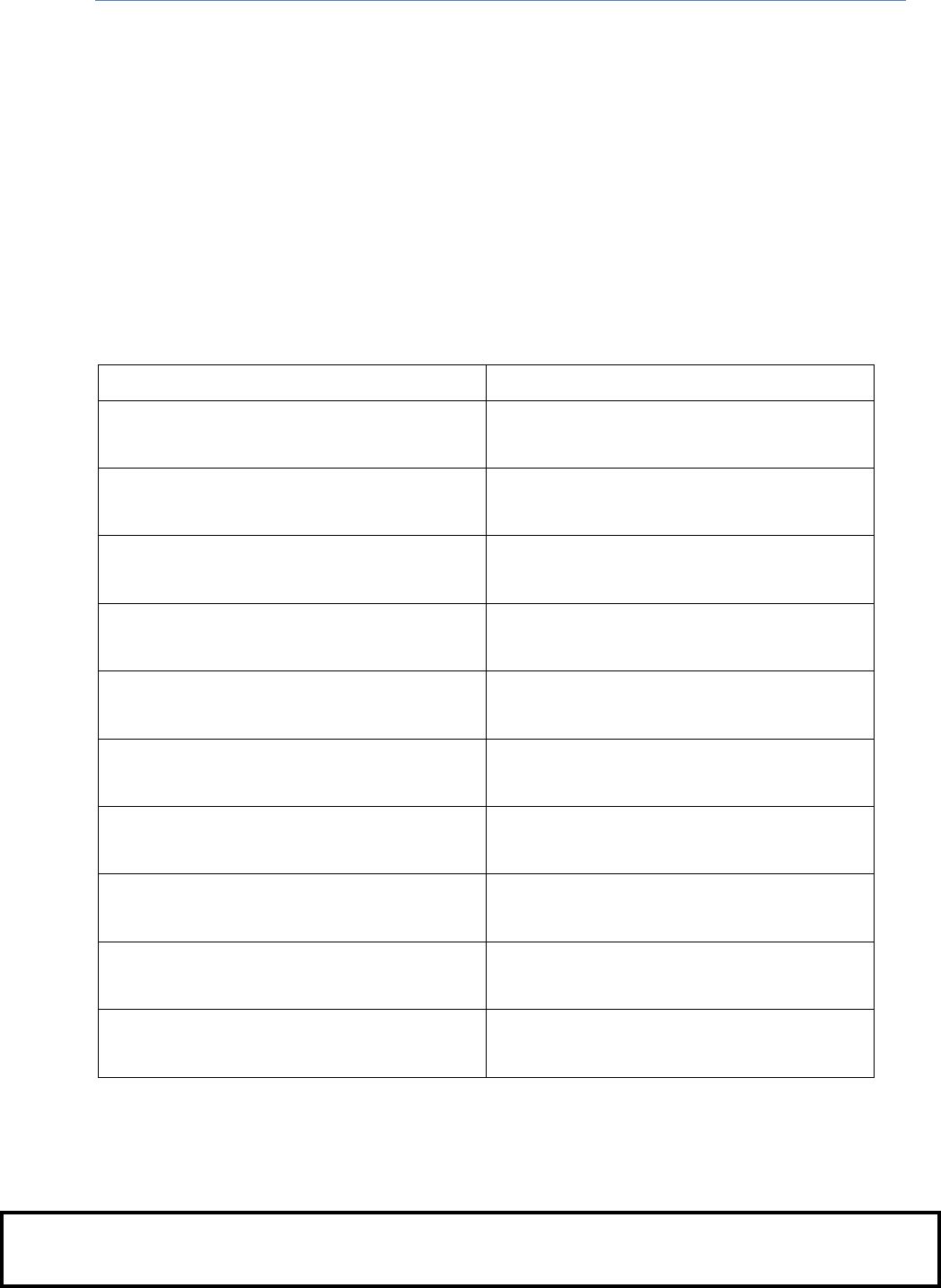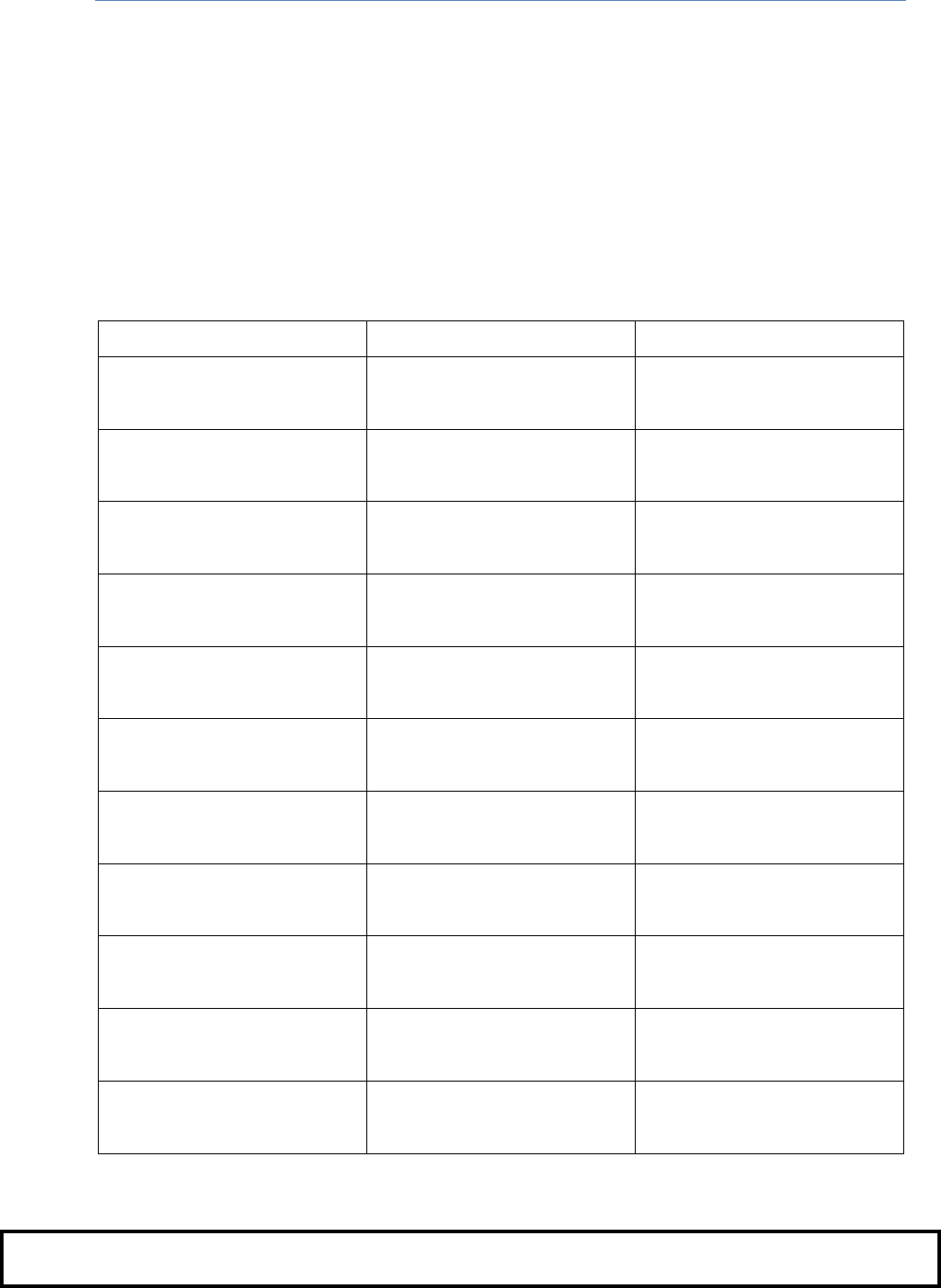
Grammar ‘can do’ worksheets
g1 key skill – I can use is, am and are correctly
When using the verb to be in the present tense, it must be changed to match
the subject of the verb.
Singular Plural
I = am We = are
You = are You = are
He / She / It = is They = are
Put the verb to be in the correct form so that it agrees with the subject of the
sentence:
1. I ______ tired.
2. “You ______ wrong!” he shouted.
3. She ______ beautiful.
4. We ______ happy.
5. “You ______ doing really well,” the teacher told the class.
6. They ______ friendly.
7. John ______ naughty.
8. Susan ______ hard-working.
9. The class ______ well-behaved.
10. I ______ clear on how to use the verb to be!
__ /10
ANSWERS:
1) am (2)
are (3) is (4) are (5) are (6) are (7) is (8) is (9) are (10) am

Grammar ‘can do’ worksheets
g2 key skill – I can use was and were correctly
When using the verb to be in the past tense, it must also be changed to match
the subject of the verb.
Singular Plural
I = was We = were
You = were You = were
He / She / It = was They = were
Put the verb to be in the correct form so that it agrees with the subject of the
sentence:
1. I ______ tired.
2. “You ______ really rude to me yesterday,” he said.
3. She ______ the most beautiful girl I had ever seen.
4. We ______ happy when school was cancelled.
5. The class ______ working really hard when the headmaster
walked in.
6. The staff at the hotel ______ very friendly.
7. Mr Smith ______ naughty when he was a child.
8. Susan ______ hard-working at school so she got a good job.
9. We ______ well-behaved in English yesterday.
10. I ______ an expert at using was or were in my writing.
__ /10
ANSWERS:
1) was (2)
were (3) was (4) were (5) were (6) were (7) was (8) was (9) were (10) am

Grammar ‘can do’ worksheets
g3 key skill – I can make the verb to agree with the third person singular
When you use the third person (he, she, it) in the present tense, you must
make the verb agree by adding an –s, -es or -ies to the end of it.
For example: I work Mary works
I brush Lola brushes
I study Bob studies
Look at these sentences and change the verb to the third person singular:
1. He ________ (sleep) 8 hours everyday.
2. My mother ________ (cook) a really tasty stew.
3. The barman ________ (mix) the cocktail very quickly.
4. She ________ (go) to the school by bus from Monday to
Friday.
5. Bob ________ (try) to study but he can't.
6. Pamela ________ (write) an email to her cousin in America
once a week.
7. My mum ________ (read) the book when she has got time.
8. The man ________ (wash) the car in the petrol station.
9. She ________ (watch) the TV 2 hours in the afternoon.
10. Alan ________ (like) puppies.
__ /10
ANSWERS:
1) sleeps (
2) cooks (3) mixes (4) goes (5) tries (6) writes (7) reads (8) washes (9) watches (10) likes

Grammar ‘can do’ worksheets
g4 key skill – I can form regular past tense verbs
When regular verbs are written in the past tense, you add –ed to the end of
the word.
For example: I play > I played
Look at these words and decide whether they are present tense or past
tense:
stamp needed clean danced
washed learn visited
ask rained need
Past tense
Present tense
1.
6.
2.
7.
3.
8.
4.
9.
5.
10.
__ /10
ANSWERS:
Past tense
1) needed (2)
danced (3) washed (4) visited (5) rained
Present tense
(6) stamp (7) clean (8) learn (9) ask
(10) need

Grammar ‘can do’ worksheets
g5 key skill – I can make the negative form of the verb
We make negatives by putting not after the auxiliary verb (be or have) or
modal verb (can, should). If there is no auxiliary, then we put do not/does not
or did not before the verb.
For example: I am working I am not working
I know I don’t know
He gets it He doesn’t get it
Positive statement
Negative
I am a student.
1.
She has gone.
2.
We can leave early.
3.
You should drink the water.
4.
I like Maths.
5.
He plays football.
6.
They do homework.
7.
I watched the game.
8.
We have to work.
9.
You have done it.
10.
__ /10
ANSWERS:
1) I am not a s
tudent. (2)
She has not gone. (3) We cannot leave early. (4) You should not drink the water. (5) I do not
like Maths. (6) He does not play football. (7) They do not do homework. (8) I did not watch the game. (9) We do not have to w
ork.
(10) You have not d
one it.

Grammar ‘can do’ worksheets
g6 key skill – I can form irregular past tense verbs
In the English language, there are a number of verbs which are not changed to
past tenses by adding –ed to the end. These verbs are irregular and therefore
have different patterns, which you must be aware of.
Look at the example of a regular verb past tenses and then write the
irregular past tense verbs in the boxes next to the base verb.
VERB
I did
I have done
jump
I jumped
I have jumped
run
1.
2.
sing
3.
4.
tell
5.
6.
say
7.
8.
go
9.
10.
know
11.
12.
take
13.
14.
put
15.
16.
get
17.
18.
buy
19.
20.
__ /20
ANSWERS:
1) ran (2)
run (3) sang (4) sung (5) told (6) told (7) said (8) said (9) went (10) gone/been (11) knew (12) known (13)
took (14) taken (15) put (16) put (17) got (18) got (19) bought (20) bought

Grammar ‘can do’ worksheets
g7 key skill – I can use modal and auxiliary verbs correctly
Modal verbs include can, could, may, might, will, would, must and should.
They are different from traditional verbs because:
o They don't use an 's' for the third person singular.
o They make questions by inversion ('She can go' becomes 'Can she go?').
o They are followed directly by another verb (without 'to').
Auxiliary verbs are be, do and have. They are auxiliary (helping) verbs when
they are followed by another verb in order to form a question, a negative, a
perfect verb tense or a passive.
Look at these sentences and add the modal or auxiliary verb:
1. ________ I help you with that?
2. ________ you lend me some money to buy some lunch?
3. You ________ go to the doctor if you’re sick.
4. He ________ come to the party.
5. We ________ try harder in English lessons.
6. ________ you do your homework?
7. I ________ never read that book before.
8. The man ________ arrested by the police.
9. She ________ ________ missed the bus.
10. James ________ ________ understood because he got 10
out of 10!
__ /10
POSSIBLE
ANSWERS:
1) can / may (2)
will /
could (3) should (4) can’t (5) must (6) did (7) have (8) was (9) could have (10) must
have

Grammar ‘can do’ worksheets
g8 key skill – I can use the passive voice in my writing
A passive verb is usually preceded by a form of the verb be and indicates that
something is being done to the subject.
Rewrite the following active sentences using the passive voice.
1. They grow rice in China.
Rice________________________________________________
2. My grandfather built this house in 1943.
This house___________________________________________
3. Picasso painted Guernica.
Guernica____________________________________________
4. The cleaner has cleaned the office.
___________________________________________________
5. The government is planning a new road in Bristol.
___________________________________________________
6. Somebody should have done the homework.
___________________________________________________
7. Everybody loves English.
___________________________________________________
8. The headmaster will tell everyone later.
___________________________________________________
9. The traffic might have delayed John.
___________________________________________________
10. You completed the passive voice worksheet correctly.
___________________________________________________
__ /10
ANSWERS:
1) Rice is grown in China. (2)
This house was built by my grandfather in 1943. (3) Guernica was painted by Picasso. (4)
The office has been cleaned. (5) A
new road is being planned in Bristol. (6) The homework should have been done. (7) English is
loved by everybody. (8) Everyone was told by the headmaster. (9) John might have been delayed by traffic. (10) The passive vo
ice
worksheet was completed correctly.

Grammar ‘can do’ worksheets
g9 key skill – I can use a, an or the in my writing
There are only three articles: the, a and an. They are very small words which
cause very large problems if used incorrectly.
For example, if you ask someone to pass you the book, it suggests that you are
talking about a specific book. However, if you asked someone to pass you a
book, it wouldn’t matter which book they chose for you (The article an is only
used when the noun or adjective begins with a vowel sound).
Look at these sentences and decide whether to use a, an, the or no article (X)
in the spaces provided:
1. I want ____ apple from that basket.
2. ____ church on the corner is Catholic.
3. Miss Smith speaks ____ Spanish.
4. I borrowed ____ pencil from your pile of pencils and pens.
5. One of the students said, "____ teacher is late today."
6. Fred likes to play ____ rugby.
7. I bought ____ umbrella to go out in the rain.
8. My daughter is learning to play ____ violin at her school.
9. Please give me ____ cake that is on the counter.
10. I lived on ____ Hengrove Road when I first moved to
Bristol.
__ /10
ANSWERS:
1) an (2)
the (3) X (4) a (5) The (6) X (7) an (8) the (9) the (10) X

Grammar ‘can do’ worksheets
g10 key skill – I can use prepositions in my writing
There are about 150 prepositions in English. Yet this is a very small number
when you think of the thousands of other words (nouns, verbs etc).
Prepositions are important words. We use individual prepositions more
frequently than other individual words. In fact, the prepositions of, to and in
are among the ten most frequent words in English.
Look at the extract below and write a suitable preposition in the spaces:
Suddenly Uncle Henry stood [1]______.
"There's a cyclone coming, Em," he called [2]______ his wife. "I'll go
look after the stock." Then he ran toward the sheds where the cows
and horses were kept.
Aunt Em dropped her work and came [3]______ the door. One
glance told her of the danger close [4]______ hand.
"Quick, Dorothy!" she screamed. "Run for the cellar!"
Toto jumped [5]______ of Dorothy's arms and hid under the bed,
and the girl started to get him. Aunt Em, badly frightened, threw
open the trap door [6]______ the floor and climbed down the ladder
[7]______ the small, dark hole. Dorothy caught Toto [8]______ last
and started to follow her aunt. When she was halfway across the
room there came a great shriek [9]______ the wind, and the house
shook so hard that she lost her footing and sat down suddenly
[10]______ the floor.
(Taken from "The Wonderful Wizard of Oz" by L. Frank Baum)
__ /10
ANSWERS:
1) up (2)
to (3) through (4) at (5) out of (6) on (7) into (8) at (9) in (10) on

Grammar ‘can do’ worksheets
g11 key skill – I use appropriate conjunctions in my writing
They may be small words, but conjunctions are highly functional and very
important for constructing sentences. As you can see in the first sentence I
used the coordinating conjunction and to link different parts of the sentence,
which is the main job of conjunctions. Basically, conjunctions join words,
phrases and clauses together.
Look at the sentences below and fill the gaps with suitable conjunctions.
1. I need to work hard ________ I can pass the exam.
2. ________ he was the best candidate, he didn't win the
election.
3. ________ you come back from your trip, we'll meet to discuss
the problem.
4. They said that the movie was fantastic ________ I watched it.
5. ________ he was very ill, he didn't take any medicine.
6. I don't know ________ I can buy a pair of jeans.
7. She went to the shops ________ couldn't find anything that
suited her.
8. Everybody likes him because he is nice ________ helps others.
9. ________ he was angry with her, he didn't utter a word.
10. Keep quiet ________ get out!
__ /10
ANSWERS:
1) so (2)
Although (3) When (4) so (5) Even though (6) if (7) but (8) and
(9) Although (10) or

Grammar ‘can do’ worksheets
g12 key skill – I can use adjectives in my writing
An adjective is a kind of word (a part of speech) that modifies (describes) a
noun. Nouns are words that name a place, a person, a thing, or an idea. An
adjective is a word that gives more information about the noun that goes with
it (accompanies).
As a rule, in English, the adjective comes before the noun it describes.
Circle the adjective in each sentence and underline the noun which it
describes.
1. They live in a beautiful house.
2. Lisa is wearing a sleeveless shirt today.
3. She wore a purple dress.
4. He writes meaningless letters.
5. This shop is much nicer.
6. Ben is an adorable baby.
7. This soup is inedible.
8. Linda’s hair is really long.
9. This glass is breakable.
10. I met a homeless person in the town centre.
__ /10
ANSWERS
(nouns underlined)
: 1) beautiful
house
(2)
sleeveless
shirt
(3)
purple
dress
(4)
meaningless
letters
(5)
shop
nicer
(6)
adorable
baby
(7)
soup
inedible
(8)
Linda’s hair
long
(9)
glass
breakable (10) homeless
person

Grammar ‘can do’ worksheets
g13 key skill – I can create noun phrases in my writing
A noun phrase includes a noun—a person, place, or thing—and the modifiers
which distinguish it.
You can find the noun dog in a sentence, for example, but you don't know
which canine the writer means until you consider the entire noun phrase: that
dog, Aunt Audrey's dog, the dog on the sofa, the neighbor's dog that chases
our cat, the dog digging in the new flower bed.
Add modifiers to the nouns in these sentences to create descriptive noun
phrases:
1. They live in ____________________________________ house
___________________________________________________.
2. I was bitten by ___________________________________ dog
___________________________________________________.
3. She wore ______________________________________ dress
___________________________________________________.
4. He drives ________________________________________ car
___________________________________________________.
5. _____________________________________________ teacher
gave the students a ton of extremely difficult homework.
__ /10
POSSIBLE
ANSWERS:
1) the large house at the end of the street.
(2)
a fierce dog with a missing ear.
(3)
a beautiful dress de
signed
by Stella McC
artney. (4) a
luxury car with black, tinted windows.
(5) The mean
-spirited English teacher

Grammar ‘can do’ worksheets
g14 key skill – I can use adverbs to describe verbs, adjectives and adverbs
Adverbs are words that modify; a verb (He drove slowly. — How did he
drive?), an adjective (He drove a very fast car. — How fast was his car?), or
another adverb (She moved quite slowly down the aisle. — How slowly did
she move?). Adverbs often tell when, where, why, or under what conditions
something happens or happened. Adverbs frequently end in -ly; however, an
-ly ending is not a guarantee that a word is an adverb. The words lovely,
lonely, motherly, friendly, neighborly, for instance, are adjectives.
Look at sentences below and choose a suitable adverb from the box:
quietly comfortably fearfully
promptly calmly quickly
suddenly gracefully silently carefully
1. Nibbles crept ___________ across the carpet towards
the open door and ___________ sneaked through while no
one was looking.
2. Sue edged ___________ over the ice as she talked
___________ to her dog clinging to a tree.
3. ___________, Eliot’s car skidded across the road. As it
went out of control, the others looked on ___________.
4. Yesterday they ___________ ate their dinner so they could get
to the concert ___________.
5. The birds flew ___________ towards the cliff top and sat
___________ on a ledge. __ / 10
POSSIBLE
ANSWERS:
1) quietly, silently
(2)
carefully, calmly
(3) Suddenly,
fearfully
(4)
quickly,
promptly
(5)
gracefully,
comfortably

Grammar ‘can do’ worksheets
g15 key skill – I can use figurative language in my writing
Figurative language can be found in literature and poetry where the writing
appeals to the senses. It can do this by giving a word with a specific meaning,
by comparing two things in such a way that you find the comparison
interesting or by using words that have unusual constructions or sounds.
Identify the correct form of figurative language used in each selection. Write
the correct word in the blank: [Use a dictionary to find the meaning of words
you don’t know.]
alliteration onomatopoeia imagery
idiom personification
hyperbole metaphor simile
1. She’s short and has shiny hair. _____________
2. He made a mountain out of a molehill ____________________
3. He is as solid as a rock _________________________________
4. Cars danced across the icy road. _________________________
5. Splat went the pancake as it fell on the floor! ______________
6. He made about a billion mistakes in his essay. ______________
7. Mr Smith works us like dogs. ____________________________
8. Poppy and peter picked up the popcorn. __________________
9. They were strange blue flowers with velvety ridges and
fragrant buds. _______________________________________
10. This exercise was as easy as ABC. ___________________
__ /10
ANSWERS:
1) alliteration
(2)
idiom
(3)
simile (4) personificat
ion
(5)
onomatopoeia
(6) hyperbole (7) simile (8) alliteration
(9)
imagery (10) simile

Grammar ‘can do’ worksheets
g16 key skill – I can write in simple sentences
A simple sentence, also called an independent clause, contains a subject and a
verb, and it expresses a complete thought.
The rabid dog ran towards me.
Identify the subject and verb in these simple sentences. Circle the simple
subject and underline the verb.
1. My best friend in the whole world is coming over to my house
to visit me this afternoon.
2. Three beautiful little kittens looked up at me from inside a box
of old clothes.
3. At the stroke of midnight, the carriage turned into a huge
orange pumpkin.
4. A really friendly old man with long white whiskers lives in the
house next door to mine.
5. Several of her favorite love songs were playing on the radio.
6. Cool, deep, dark blue water flowed through the rough
limestone rocks in the gorge.
7. The large red book sitting on the hall table was a dictionary.
8. The three girls carried bags filled with books, food, sweets,
clothes, make-up, pens, paper, hairbrushes, and other items.
9. I don’t remember the name of that tall, thin actor with the
sparkling blue eyes.
10. Do you understand how to write simple sentences now?
ANSWERS
(verbs underlined)
: 1) best friend
coming
(2)
kittens
looked
(3)
carriage
turned
(4) man
lives
(5)
songs
were playing
(6) water
flowed
(7) b
ook
sitting
(8) girls
carried
(9)
I don
’t remember
(10)
you
understand

Grammar ‘can do’ worksheets
g17 key skill – I can write compound sentences using FANBOYS
A compound sentence contains two independent clauses joined by a
coordinating conjunction. The coordinating conjunctions are as follows:
for, and, nor, but, or, yet, so (FANBOYS).
Except for in very short sentences, they are always preceded by a comma.
Use an appropriate coordinating conjunction (FANBOYS) to link these clauses
into a compound sentence:
1. The black dog doesn't know many tricks _______ he has won
many prizes.
2. You can cry about it _______ you can just do your detention.
3. Let's go to the swimming pool _______ it's hot inside the
house.
4. She saw a kitten left in the road _______ she called the RSPCA.
5. I want to go to the circus _______ I want to ride a pony.
6. I have never visited Asia _______ have I ever visited Africa. (I
have never visited Africa)
7. The little boy did not like going to school _______ he went
anyway.
8. I wanted to buy the new Xbox game _______ I started to save
my money.
9. Rabbits make good pets _______ they don’t make too much
noise and they are clean.
10. I didn’t know how to make compound sentences _______ now
I do! __ /10
ANSWERS:
1) but
(2)
or (3)
for (4) so (5)
for/an
d (6) nor (7) but (8) so
(9)
for (10)
but

Grammar ‘can do’ worksheets
g18 key skill – I can write complex sentences
A complex sentence has an independent clause joined by one or more
dependent clauses. A complex sentence always has a subordinator such as
because, since, after, although, or when (and many others) or a relative
pronoun such as that, who, or which.
Look at the following sentences. Underline the main clause (the clause which
makes sense on its own) and circle the subordinating conjunction:
Example: The postman wouldn’t deliver our post after my dog bit
him.
1. Because we were all so tired, we decided to go home early.
2. Unless we do all of our homework, we won’t be able to play.
3. My dog waited at the door for us until we got home.
4. Although none of us wanted to leave, we had to be home
before midnight.
5. If Charlie doesn’t stop teasing that dog, the dog is going to bite
him.
6. We took pictures while the monkeys swung from the trees.
7. Whenever my sister gets in trouble, my dad makes her wash
the car as a punishment.
8. Once school starts, you must wear your blazer in class.
9. Before you accuse someone of stealing your pencil, make sure
it isn’t just lost.
10. I had to do this worksheet because I wasn’t forming complex
sentences correctly. __ /10
ANSWERS:
1) because
(2)
unless
(3)
until (4) although
(5)
if (6) while (7) whenever (8) once
(9)
before (10)
because

Grammar ‘can do’ worksheets
g19 key skill – I can write embedded clauses
Embedded clauses are also called subordinate clauses. They are part of a
larger sentence, and they explain time, place, reason, or other conditions in
which an action took place. They often use the pronouns who (when referring
to people), which (when referring to things), where (when referring to places),
or when (when referring to a time).
Add an embedded clause to the middle of these complex sentences, using an
appropriate pronoun.
1. The music _________________________ gave me a headache.
2. The boy ____________________________________________
climbed into the space rocket.
3. The ants ____________________________ invaded our picnic.
4. The elderly man ______________________________________
struggled across the road.
5. I got CoD Advanced Warfare____________________________
for Christmas.
6. The man ____________________________________ was late.
7. The mobile phone ____________________________________
couldn’t be fixed.
8. My English teacher ___________________________________
lives in Bristol.
9. Last week, I bought a new game _________________________
_________________________.
10. I have completed this worksheet ____________________
_____________________________________. __ /10

Grammar ‘can do’ worksheets
g20 key skill – I start my sentences in a variety of ways
Rather than always starting sentences with the subject + verb, you can start
sentences in a variety of ways including: verb+ing, verb+ed, a place, a time, or
a reason.
Use the following prompts to re-write this sentence:
[You do not need to copy all the information in the sentence each time]
“The happy, friendly man quietly walked down the street on a beautiful
summer’s day, and he waved at passers-by as he went”
1. Start with the adverb: _________________________________
___________________________________________________
___________________________________________________
2. Start with the prepositional phrase for place:_______________
___________________________________________________
___________________________________________________
3. Start with the prepositional phrase for time: _______________
___________________________________________________
___________________________________________________
4. Start with the –ing form of the verb: _____________________
___________________________________________________
___________________________________________________
5. Start with a reason for his actions: _______________________
___________________________________________________
___________________________________________________
POSSIBLE
ANSWERS:
1) Quietly
… (2)
Down the street walked
… (3)
On a
beautiful
summer
’s day
… (4) Walking
down the street
…
(5)
Because
it was
such a beautiful
sunny
day
,
